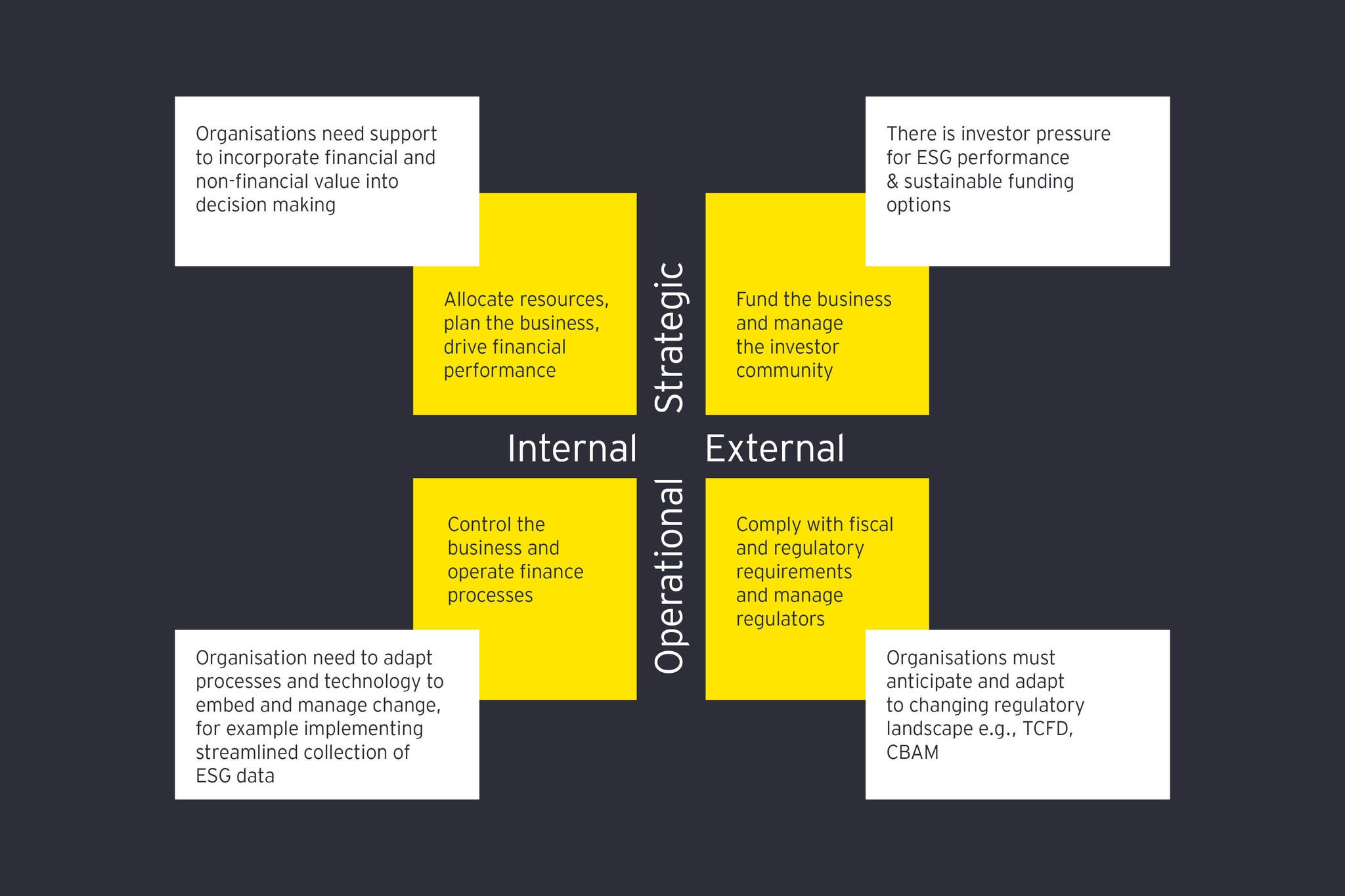EY refers to the global organization, and may refer to one or more, of the member firms of Ernst & Young Global Limited, each of which is a separate legal entity. Ernst & Young Global Limited, a UK company limited by guarantee, does not provide services to clients.
How EY can help
-
Discover how EY's finance consulting services can help your business capitalize on opportunities to drive profitable growth and drive transformative change.
Read more
Organisations can no longer ignore the physical, market and regulatory impacts of climate change. Increasing stakeholder pressure means that organisations need to play a more significant role in building a sustainable future.
In this article, we explore why Chief Financial Officers (CFOs) must play a leading role in tackling the sustainability challenge, the benefits of transitioning to a sustainable business model and how the finance function can enable this vital change.
Sustainability is the new market disruptor
Climate change and sustainability are forcing people to think differently and as a result, stakeholder priorities are changing. Increasingly, stakeholders are demanding more from organisations than a commitment to short-term profitability and are questioning how much of a company’s value is reflected in its financial reports. To address this, the so-called triple bottom line (an accounting concept which recognises value generation in terms of people, planet and profit) has led to a definition of ‘value’ which, as outlined in our article detailing why ESG is important for investors, includes both financial and nonfinancial value drivers.
‘Long-term value’ is created by focussing on a broader set of stakeholders, with a distinct purpose in mind, to sustain a business for the long term. It represents a more comprehensive reflection of value, recognising the impacts (both positive and negative) of an organisation’s activity.
Every organisation is going to need to adapt, to understand what this change in value perception means to them, and to pivot what they do today to support wider environmental, social and governance (ESG) outcomes in the future. This where the CFO comes in.









